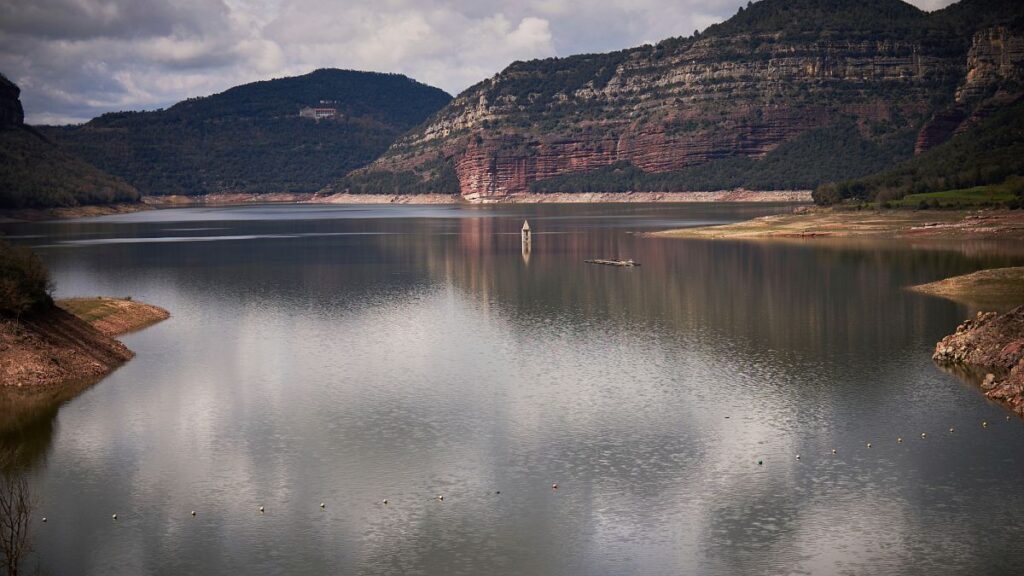The European Commission is preparing to support a major clean-up initiative targeting Per- and polyfluoroalkyl substances (PFAS), also known as “forever chemicals” due to their persistence in the environment and human body, according to a leaked proposal seen by Euronews.
The operation, which is expected to start in 2026, is a central feature of the forthcoming EU Water Resilience Strategy.
Controversially shelved by the previous Commission and now slated for presentation by 4 June, the new strategy aims to address increasingly severe flooding, droughts, and escalating water pollution across Europe.
According to a leaked draft of the proposal seen by Euronews, the Commission warns that “urgent action is needed to tackle pollutants of emerging concern which pose a risk to our vital sources of drinking water.”
“The EU must embark on decisive efforts to clean up these and other ubiquitous, persistent, bio-accumulative, and toxic substances, particularly where such chemicals remain indispensable for societal or industrial use,” the draft continues.
The leaked document stresses that remediation should follow the “polluter pays” principle, with public funding reserved for so-called orphan sites, namely locations where no responsible party can be identified.
The estimated cost of cleaning up PFAS contamination across Europe ranges from €5 billion to €100 billion annually, according to the Commission. The water sector alone could face up to €18 billion in additional yearly expenses for drinking water treatment. Costs for wastewater and sewage sludge management are projected to be even higher.
Among the planned initiatives is a public-private partnership launching in 2026, focused on the detection and clean-up of PFAS and other persistent chemicals. The initiative will align with recently revised EU legislation on industrial emissions, drinking water, and wastewater, and is intended to foster innovation and market development within the European water sector.
“Innovation and digitalisation are indispensable to remove emerging pollutants like PFAS and other toxic micro-substances,” the Commission notes in the draft adding that bio-based technologies could offer long-term solutions. The document also highlights the importance of achieving energy neutrality in the wastewater sector and improving integrated urban water management.
The PFAS actions in the strategy are intended to complement ongoing efforts under the revision of the EU’s REACH framework, as outlined in President von der Leyen’s 2024–2029 political guidelines, which are also slated for revision soon.
By the end of 2025, the Commission aims to adopt a comprehensive restriction on all PFAS in firefighting foams, identified as one of the primary sources of PFAS emissions.
PFAS and other highly persistent pollutants continue to accumulate in EU waters, with estimated health-related costs ranging from €52 billion to €84 billion annually.
Aligned with the Zero Pollution Action Plan, the Commission also proposes a monitoring and outlook system to tackle water and marine pollution at its source.
Read the full article here

